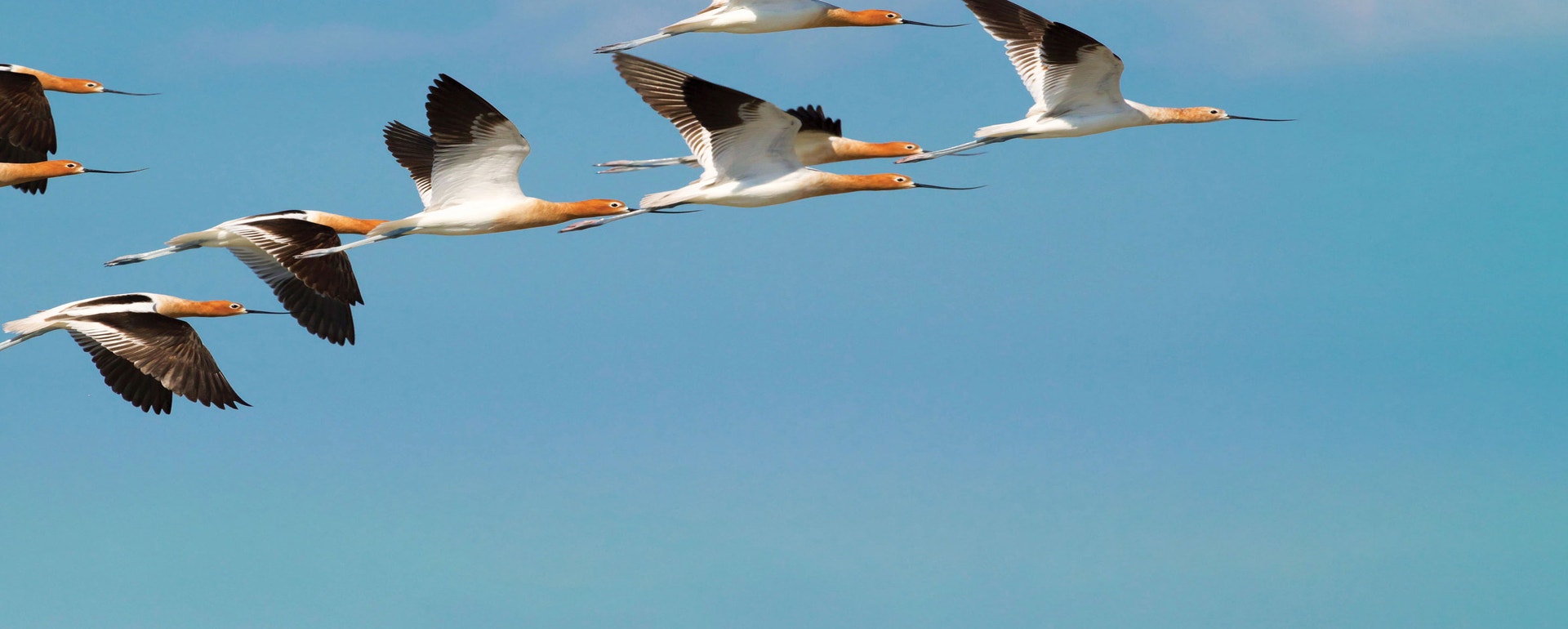
Welcome to Flight Plan
For 120 years and counting, Audubon has demonstrated strength, adaptability, and resilience through periods of change.
Flight Plan, our 2023–2028 strategic plan, represents a new era that builds on the strengths and lessons from our past. With it, we can meaningfully align our work as we attempt to "bend the bird curve," meaning that we are working to halt, and ultimately reverse, the decline of birds across the Americas. This work requires us to work efficiently across habitats and national borders, with partners and governments and local communities sharing the same resources as their local birds.
The urgency of the moment demands much of us. This is a turning point for our planet and our organization, and Audubon is ready to meet the challenge. Flight Plan positions us to achieve meaningful and lasting impact—protecting birds, people, and our planet.
What Sets Audubon Apart
Where We Will Work
We identified a total of 3.7 billion acres across the hemisphere representing key ecoregions in which Audubon would focus efforts to bend the bird curve. These are distributed across Forests (1.3B acres); Grasslands, Aridlands, and Tundra (1.3B acres); Wetlands & Coastal (550M acres), Marine (450M acres), and Urban (12M). Within these habitats, we have identified nearly 60 percent as current priorities reflecting current capacities and the remainder are potential future priorities to be evaluated during the operational blueprint development process.
How We Will Work for Maximum Impact
We will improve and expand habitat while tackling the impacts and causes of climate change. We will leverage public and corporate policies and funding to achieve gains in habitat and climate, while building a base of supporters inspired to change the world for birds. As a result, we are prepared to inspire, influence, innovate, and achieve unprecedented impact.
Get Audubon in Your Inbox
Let us send you the latest in bird and conservation news.











